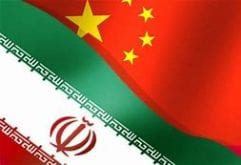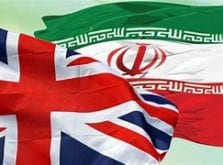Al-Monitor – US Iran Envoy Robert Malley told the Senate Foreign Relations Committee today, Wednesday, May 25, that “as I speak to you today, we do not have a deal with Iran and prospects for reaching one are, at best, tenuous.” Elizabeth Hagedorn has the report on the hearing here.
And nonetheless, the slight hedge continues to be that the Joint Comprehensive Plan of Action (JCPOA), or Iran nuclear deal, still has a pulse.
Here are four reasons why.
The Iranian street has a vote
- The economic incentive for President Ebrahim Raisi’s government to close the nuclear deal has always been substantial, but now it’s even more so.
- “Iran is witnessing a new wave of social protest in reaction to the price hikes caused by the government’s reforms of direct and indirect subsidies,” writes Bijan Khajehpour this week.
- Official statistics indicate inflation was at 42% in March. Iran’s official unemployment rate is over 11%; it’s probably much higher.
The price of oil
- Iran’s oil exports to China have declined as a result of China’s COVID-19 lockdowns and rising imports of lower-priced Russian oil, Reuters reports.
- If Iran returns to compliance with the JCPOA, and gets sanctions lifted on its energy and financial sectors, among other benefits, Iran could likely quickly double its oil exports from 1 million to 2 million barrels per day (bpd), and take advantage of oil prices in the $110 per barrel range.
EU shuttle diplomacy
- Ali Hashem, in Iran earlier this month, got the scoop from official sources that a new Iranian proposal on the Islamic Revolutionary Guard Corps issue, presented to EU Envoy Enrique Mora, included “revisited ideas” that are not IRGC “centric.”
- Iran continues to seek guarantees from the Biden administration that it will adhere to the deal as long as it is in office.
Watch the regional traffic
- The Iran nuclear deal is, on paper, not about regional security, except that, indirectly, it is woven into an enhanced deterrent posture and diplomatic initiatives by the US and many of the key players in the Middle East, and affecting developments in Iraq, Yemen, Lebanon and Syria.
- Malley said Wednesday that the Biden administration is committed to building on the JCPOA, if agreed, “to seek a broader, follow-on diplomatic outcome that enjoys strong congressional backing; and, throughout, coordinating closely with Europe and, crucially, with Israel and our regional partners, against the backdrop of the Abraham Accords, to deter, counter and respond to the full array of Iranian threats and to credibly demonstrate that we will never permit Iran to acquire a nuclear weapon.”
- US President Joe Biden is planning to visit the Middle East at the end of June. Stops in Israel and the West Bank are confirmed; the rest of the itinerary, including a summit with regional partners, and possible trip to Saudi Arabia, is a work in progress, as Axios’ Barak Ravid reports.
Fast Facts on Iran (global rank):
- 2nd largest natural gas reserves, behind Russia.
- 4th largest oil reserves, behind Venezuela, Saudi Arabia and Canada.
- 17th in military spending ($19.6 billion), behind Saudi Arabia ($67.6 bil), UAE ($22.75 bil), and Israel ($20 bil) in the Middle East.
- 18th largest population of approximately 83.9 million behind only Egypt (102 million) and Turkey (84.3 million) in the Middle East.
- 18th largest economy (per GDP; $1.08 trillion), highest in the Middle East.
From our regional correspondents
1. Israel-Iran shadow war intensifies
Senior Islamic Revolutionary Guard Corps member Hassan Sayyad Khodaei helped plot attacks against Israeli and Jewish targets before his assassination on Sunday, according to Israeli and Western intelligence assessments. Mossad is suspected in his killing, which comes as experts say the Israeli intelligence agency is operating on Iranian soil with growing intensity.
“Israel’s counterterrorism campaign has spread from hitting Iranian facilities in Syria into Iran itself,” writes Ben Caspit. In a brazen episode last month, Mossad agents reportedly detained and interrogated a state-hired assassin in Iran. Caspit writes there are growing indications that Israel has shifted its attention from countering Iran’s nuclear program to its terrorist activities, entrenchment in Syria and precision missile adaptation.
 Shabtabnews In this dark night, I have lost my way – Arise from a corner, oh you the star of guidance.
Shabtabnews In this dark night, I have lost my way – Arise from a corner, oh you the star of guidance.



